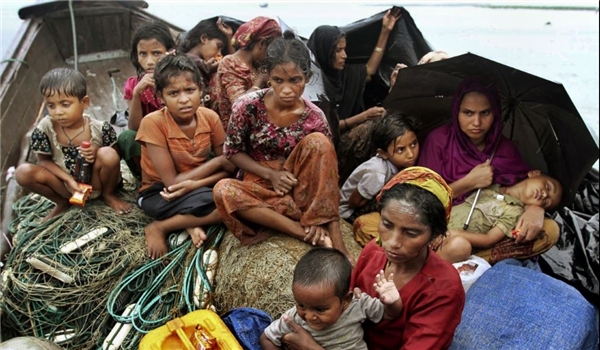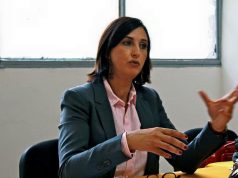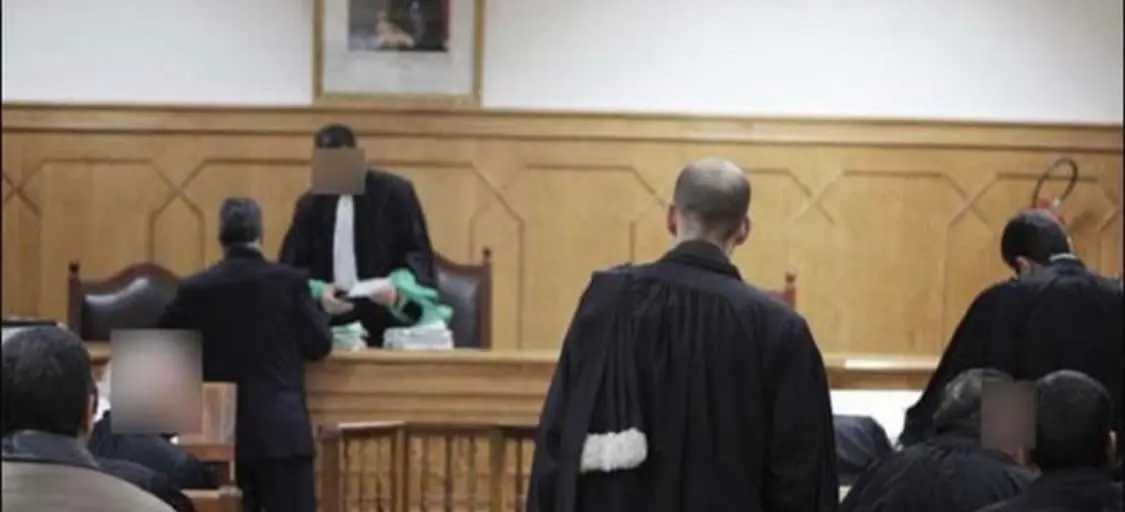
The European coasts are not the only ones to help hundreds of migrants every day. In recent days, Indonesia and Malaysia have to manage an unusual influx of illegal immigrants who are stranded on their shores. Four boats with about 1400 people aboard were rescued on two weeks ago, presumably abandoned by their smugglers. The day before, 600 people were gathered in the same circumstances. This new influx comes at the same time as the tightening of the fight against illegal immigration in Thailand, their usual crossing point. Among them, many Rohingyas fleeing Burma, victims of discrimination and hate speech of radical Buddhist leaders.
The Rohingya, the distant descendants of Arab, Mongolian, Turkish, Bengali and even Portuguese traders and soldiers, converted to Islam in the fifteenth century, when at the time the region was a vassal state of Bengal.
In June 2012, a Rohingya is accused of raping a Burmese. This will be the starting point of an ethnic cleansing campaign in the Ankaran, state of the Burmese northeast where they live. The Burmese regime and several Buddhist monks are accused of participating in or promoting a “crime against humanity,” according to Human Rights Watch (HRW). The non-governmental organization believes that the authorities have taken part in the destruction of mosques, launched waves of arrests accompanied by violence and blocked the access of humanitarian aid agencies to displaced Muslims. On 23 October, at least 70 Rohingyas were massacred in one day in the village of Yan Thei in Mrauk-U commune.
Today, discrimination continues. The Rohingyas cannot work, get married or study. They are regularly expropriated, extorted, deprived of care … In the villages razed by the riots of 2012, their cultural heritage has been destroyed. Hundreds of thousands of Rohingyas now live in camps, others are reclusive in their villages controlled by police. Around 140,000 people were transferred to IDP camps built around Sittwe, the capital of Arakan. Over 26 km2, refugees are piled up and live in extreme poverty. The regime regularly hampers the work of humanitarian organizations.
Amartya Sen, nobel prize on development economics 1998, even declared, “The Term ‘slow genocide’ is appropriate because you deny [Rohingya] people health care, nutritional opportunities.”
Each time, Aung San Suu Kyi’s government responded in the same way: They denied the allegations, accused the NGOs and the press of hawking false news. It also assures that it manages the crisis while respecting the rule of law. More than one hundred suspects were killed by the army, some died in detention. The UN is calling for an independent investigation.
In Arakan, 150,000 people depend on food rations that are usually distributed by the UN and NGOs. They have not received them for a month and a half and 3,000 children suffering from malnutrition are at risk of dying, warns the UN. The Burmese government and the army prevent humanitarian workers from freely accessing the state of Arakan.
The news is a further blow to the tens of thousands of us around the world who campaigned for years to have pro-democracy leader Aung San Suu Kyi set free from the house arrest enforced by the ruling military junta in Myanmar, formerly known as Burma.
For the uncomfortable truth there is little to separate the diminutive Suu Kyi from the dictatorship which was globally reviled because of its treatment towards her and her vast army of supporters. She was swept to power on a peaceful, non-violent campaign but her hands are now stained by the blood of innocents.
Oh how we all celebrated at Myanmar’s elections last year, hailing them as historic, the birth of a new era of democracy and political freedom in a country which had been in the grip of the awful military junta.
Edinburgh was among many to offer the leader of the National League for Democracy (NLD) the freedom of the city while universities and other institutions feted her with accolades and awards as she did a global lap of honour after being released.
However, we must now accept that the fragrant, charismatic Suu Kyi is morphing into a dictator who is beginning to mirror the old regime she so despised. The generals of the Myanmar military who were forced into embracing a sliver of democracy by the international community or endanger their own lucrative, global business arrangements must be both bemused and delighted by the transition of the world’s most famous house arrest prisoner.
For the truth, Suu Kyi has built her political reform of Myanmar around a frenzy of ultra-nationalism and Islamophobia. Her supporters might grudgingly admit this was the price she had to pay for democracy but the reality is she made a calculated decision on the backs of those who needed her most … the Rohingya people.
Last sunday in front of a crowd of 5,000 people, Malaysian Prime Minister Najib Razak declared that the government of Aung San Suu Kyi should put an end to the “genocide” of the Rohingyas and denounced the passivity of the international community. “What is the Nobel Prize for in Aung San Suu Kyi? “Asked the head of the Malaysian government.
Aung San Suu Kyi, since her historic victory in the elections a year ago, has hardly expressed herself on the subject since the violence began in October. And the new Burmese government has no power over the army, which remains in charge of the Ministry of Interior and Borders in particular.
The Rohingyas are stateless, considered as foreigners in Burma, although some of its members have lived there for generations. Their citizenship is not recognized by this 95% Buddhist country. They live marginalized, under miserable conditions. A rise of Buddhist nationalism in Burma in recent years has fueled hostility towards them.
I show my respect to “Honoring Human Rights Day”. Can today be reflection on giving the basic fundamental Human Rights to Rohingya people in Myanmar? Ms lady Suu Kyi, can you break your silence to contemplate today for Rohingya? All the innocent people deserve Human Rights including Rohingya innocent children who are being burnt alive into fire, women are being gang raped and men are being shot and killed by the brutal Myanmar military.






